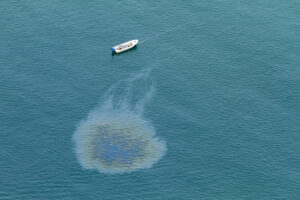FBAR Penalties Could Be Lessened Under New IRS Guidelines
According to the IRS, “if you have a financial interest in or signature authority over a foreign financial account, including a bank account, brokerage account, mutual fund, trust, or other type of foreign financial account, exceeding certain thresholds, the Bank Secrecy Act may require you to report the account yearly to the Department of Treasury by electronically filing a Financial Crimes Enforcement Network (FinCEN) 114, Report of Foreign Bank and Financial Accounts (FBAR).”
In other words, anyone who has money in a foreign bank account that exceeds $10,000 at any time during a given year will need to report that income to the IRS via an FBAR. However, recently, the IRS issued some new guidance regarding the penalties for those who don’t file an FBAR. According to reports, the IRS released a statement that noted: “For each year for which it is determined that there was a willful violation, examiners must fully develop and adequately document in the examination work papers their analysis regarding willfulness.”
For any case that involves willful violation for several years, it is up to the examiner to recommend the penalty length for each year the violation was determined to be willful. The IRS stated that typically the total penalty for the combined years under examination would not exceed ‘50 percent of the highest aggregate balance of all unreported foreign financial accounts during the years under examination.”
Meantime, an examiner can recommend more or less than the 50 percent threshold, but the total penalty cannot “exceed 100 percent of the highest aggregate balance.” There are obviously many possible scenarios and each case will be treated separately on its own merits and circumstances. The bottom line is you should still report your FBARs each year and report them on time. If you need help planning for and filing your FBAR then contact GROCO today at 1-877-CPA-2006, or by clicking here.
Gulf Oil Spill: Questions and Answers
Gulf Oil Spill: Questions and Answers Source: IRS.gov Posted: 7/2/2010 Q1. Is a taxpayer required to include in gross income payments the taxpayer receives for lost business income, lost wages or lost profits? A1. Yes. The law requires that a taxpayer include in gross income payments the taxpayer receives for lost business income, lost wages…
Free Money For College Students
Free Money For College Students College. Tuition, books, housing, computer, food, etc… Sound familiar? These items are just a few of the many frequent expenses encountered in a student’s college career. The government made education credits to try and offset these expenses by giving tax benefits to them. From a tax standpoint, Education credits have…
When Good Fortune Comes Your Way
When Good Fortune Comes Your Way Whether expected or not, an inheritance, divorce settlement, severance package or pension payout, proceeds from the sale of a business, life insurance, legal judgments, or even lottery winnings—all can put in your hands the equivalent of several years of earnings. Now you’re at a crossroads—suddenly called upon to switch…
Rising prices make inflation-protected securities more attractive
Rising prices make inflation-protected securities more attractive High oil and gasoline prices combined with trouble in the Middle East, saber-rattling by North Korea, and a slowing housing market have many investors worried anew about inflation. Inflation is an ugly creature; when it spins out of control, it can quickly erase gains built up over years…



